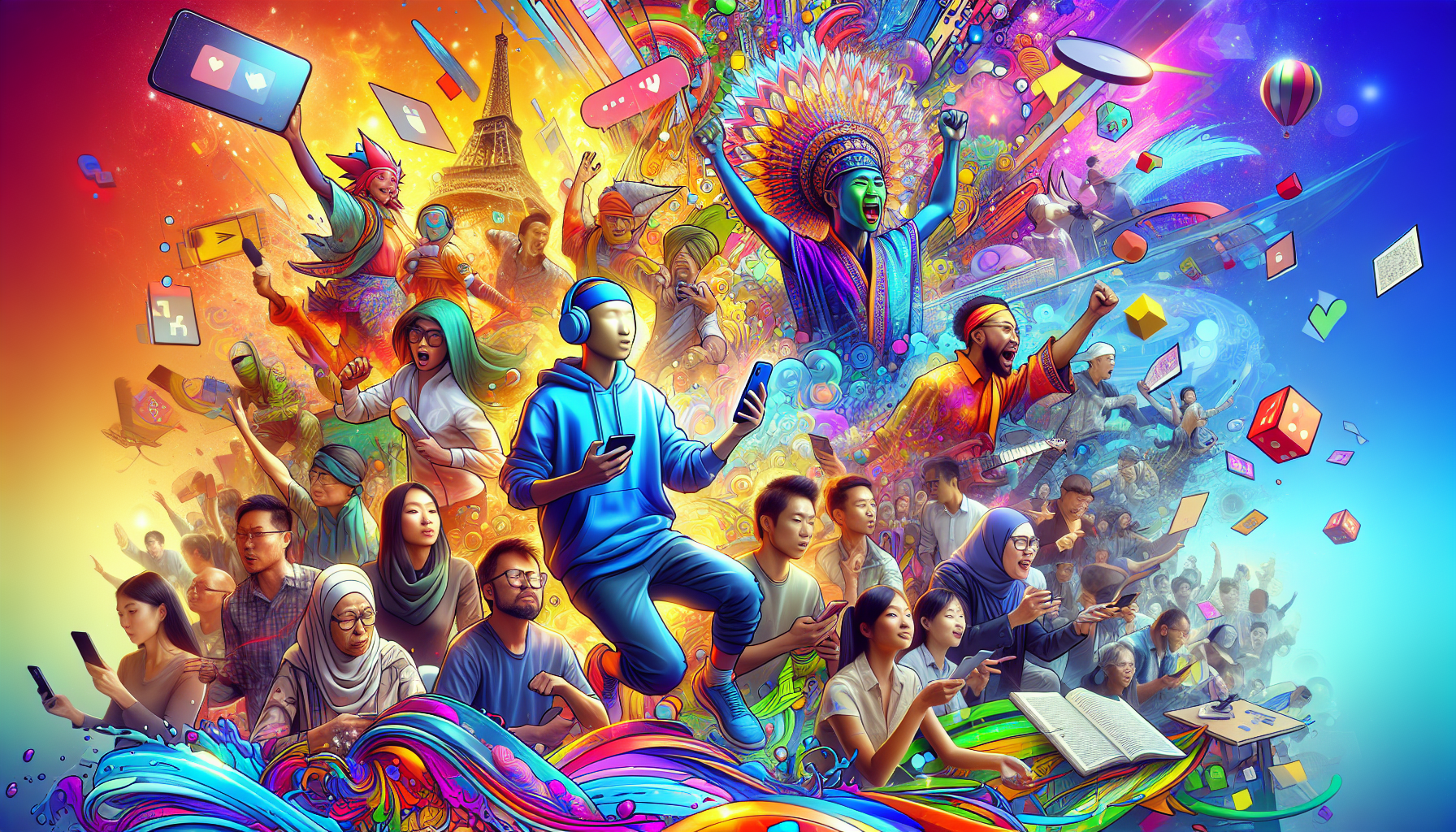Advertisements
Mobile Gaming in Asia: The Cultural Revolution of Youth
The Popularity of Mobile Games in Asia
Mobile gaming has become increasingly popular around the world, and Asia is no exception. In this region, young people have been embracing mobile gaming en masse, transforming the way they have fun and connect with others. The rise of mobile gaming in Asia is not just a passing trend, but rather a true cultural revolution that is having a significant impact on society.
Asia has been a fertile ground for the development and popularization of mobile games. Countries such as China, Japan and South Korea have a very strong gaming culture, which contributes to the massive adoption of mobile games in these countries. Young Asians are especially avid consumers of mobile games, spending hours daily playing on their smartphones.
The influence of Mobile Games on youth culture
Young Asians are using mobile games not only as a form of entertainment, but also as a way to express themselves and connect with other players around the world. These games have proven to be a powerful tool for creating social and cultural connections, promoting diversity and inclusion among young people in the region.
Advertisements
Mobile gaming has had a significant impact on youth culture in Asia. With the proliferation of games like PUBG Mobile, Free Fire and Honor of Kings, young Asians are increasingly connecting through gaming, creating online communities and competing in multiplayer games. This has shaped not only their entertainment habits, but also the way they socialize and interact.
- Fortnite
- Mobile Legends
- PUBG Mobile
- Clash Royale
The Future of Mobile Gaming in Asia
The mobile gaming industry in Asia has proven to be extremely lucrative, with a constantly growing market and an ever-increasing demand for new games and content. Developers are investing heavily in this segment, creating unique and innovative experiences that captivate players and generate significant revenue.
With the continued advancement of mobile technology and the growing interest of young people in digital gaming, it is safe to say that mobile gaming will continue to play an important role in Asian youth culture. The mobile gaming market in the region is constantly growing, with more and more developers creating innovative and engaging games to meet the demand of young Asians for quality digital entertainment.

The mobile gaming industry in Asia has been undergoing a revolution, rapidly adapting to new technologies and the interests of young consumers. With the explosive growth of smartphones, mobile gaming has become a major form of entertainment in several Asian countries, especially in China, Japan, South Korea and Southeast Asia. This phenomenon is transforming the way young people interact with games, with the integration of innovative technologies such as augmented reality (AR) and virtual reality (VR), which make the experience even more immersive and engaging.
Advertisements
These new technologies have the power to transport players into rich, dynamic virtual worlds, allowing them to interact in unprecedented ways. Games like Pokémon GO, which popularized augmented reality, are just one example of how mobile games are changing the way we play, blurring the boundaries between the physical and virtual worlds. By using the real space around the player as part of the game, AR offers a unique experience, making gaming not just an entertainment activity, but also a way to explore the environment around you. Virtual reality, with its immersive headsets and devices, is creating high-fidelity digital universes where players can fully immerse themselves in interactive gaming experiences.
Furthermore, the integration of socialization elements into mobile games is creating new forms of digital interaction among young people. Multiplayer online games, such as League of Legends and PUBG Mobile, allow players to connect with friends and strangers alike, forming teams, competing in tournaments or simply getting together to play. These social aspects are making mobile gaming an even more engaging experience, fostering the creation of robust and often global virtual communities. Young Asians, in particular, have embraced these platforms as a means to socialize, compete and build friendships, overcoming physical and geographical limitations.
Competitive mobile gaming has also spawned a growing eSports market, with large-scale competitions taking place across Asia. ESports tournaments, which offer cash prizes and attract thousands of online viewers, have become major cultural events, with a global audience following the top players and teams. These tournaments are creating a new generation of digital influencers and professional gamers, reflecting the increasing professionalization of gaming and its impact on the cultural and economic landscape.
Youth culture in Asia is increasingly influenced by mobile games, which not only provide entertainment but also shape young people’s digital identities. Gaming platforms become an extension of young people’s social and personal lives, where they can express their individuality, form friendships, and even develop skills and strategies. The social and competitive nature of games has reinforced a culture of community, where players find a space to connect and create their own digital meaning.
It is interesting to note how mobile games are also becoming a form of cultural expression. Many games are adapted to reflect local traditions and stories, integrating elements of Asian culture into their plots and designs. This not only provides a more relevant and connected experience for the player, but also contributes to the preservation and dissemination of cultural elements through global platforms. These games can therefore play an important role in educating and appreciating the diverse cultures that make up Asia.
Conclusion
In conclusion, mobile gaming has played a key role in Asian youth culture, connecting young people through shared digital experiences and shaping their entertainment and socializing habits. With the growing popularity of games such as PUBG Mobile, Free Fire and Honor of Kings, Asian youth are increasingly immersed in online communities and multiplayer competitions, redefining the way they connect and interact. The mobile gaming market in Asia is constantly expanding, with developers creating innovative games to meet the demand for quality digital entertainment.
The influence of mobile gaming on Asian youth culture is undeniable, and the future looks bright for the gaming industry in the region. With continued advancements in mobile technology and young people’s growing interest in digital experiences, mobile gaming is likely to continue to be an essential part of Asian youth’s lives, contributing to the ongoing cultural revolution. As such, mobile gaming in Asia is not only a form of entertainment, but also a tool to connect and unite young people across the region.




